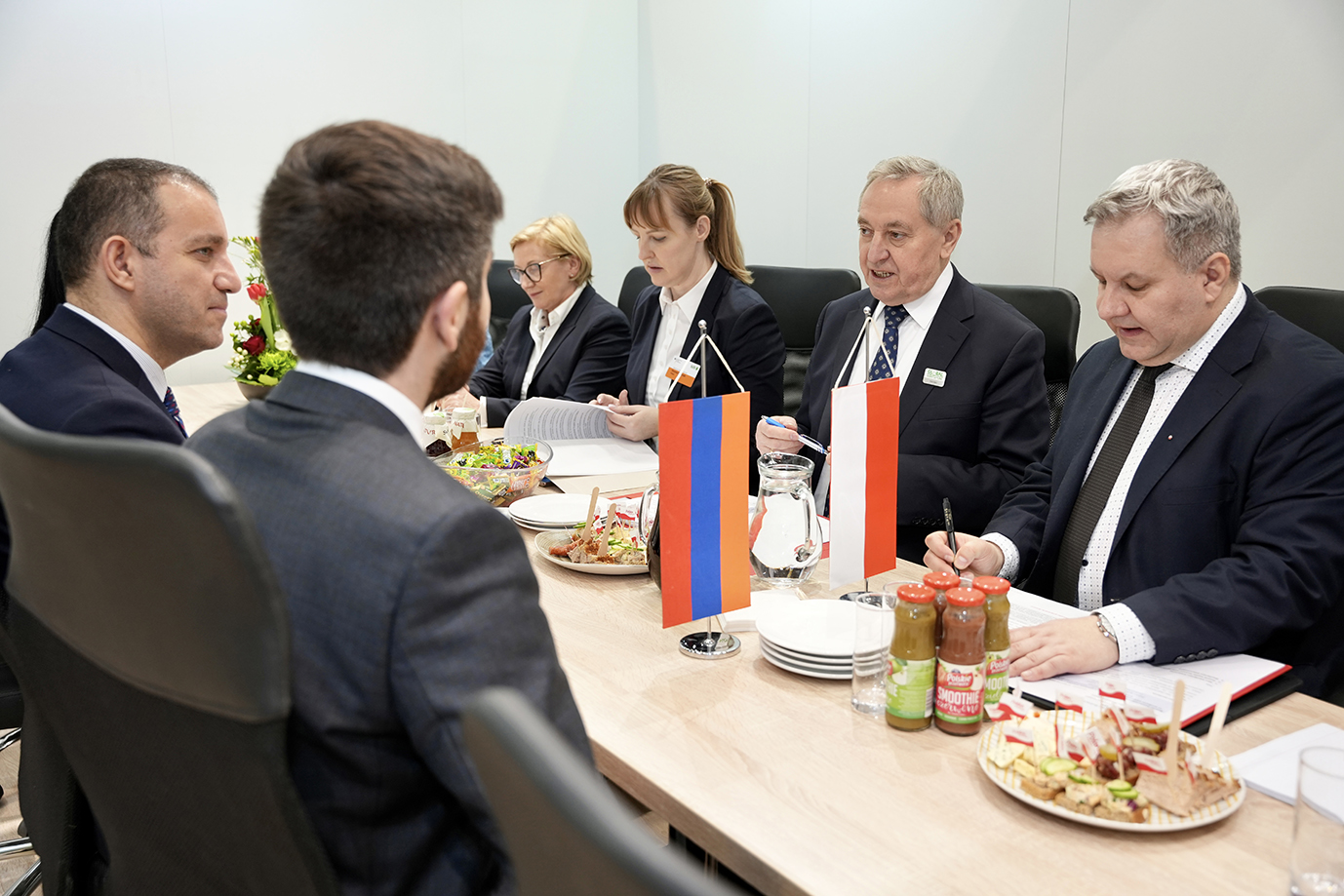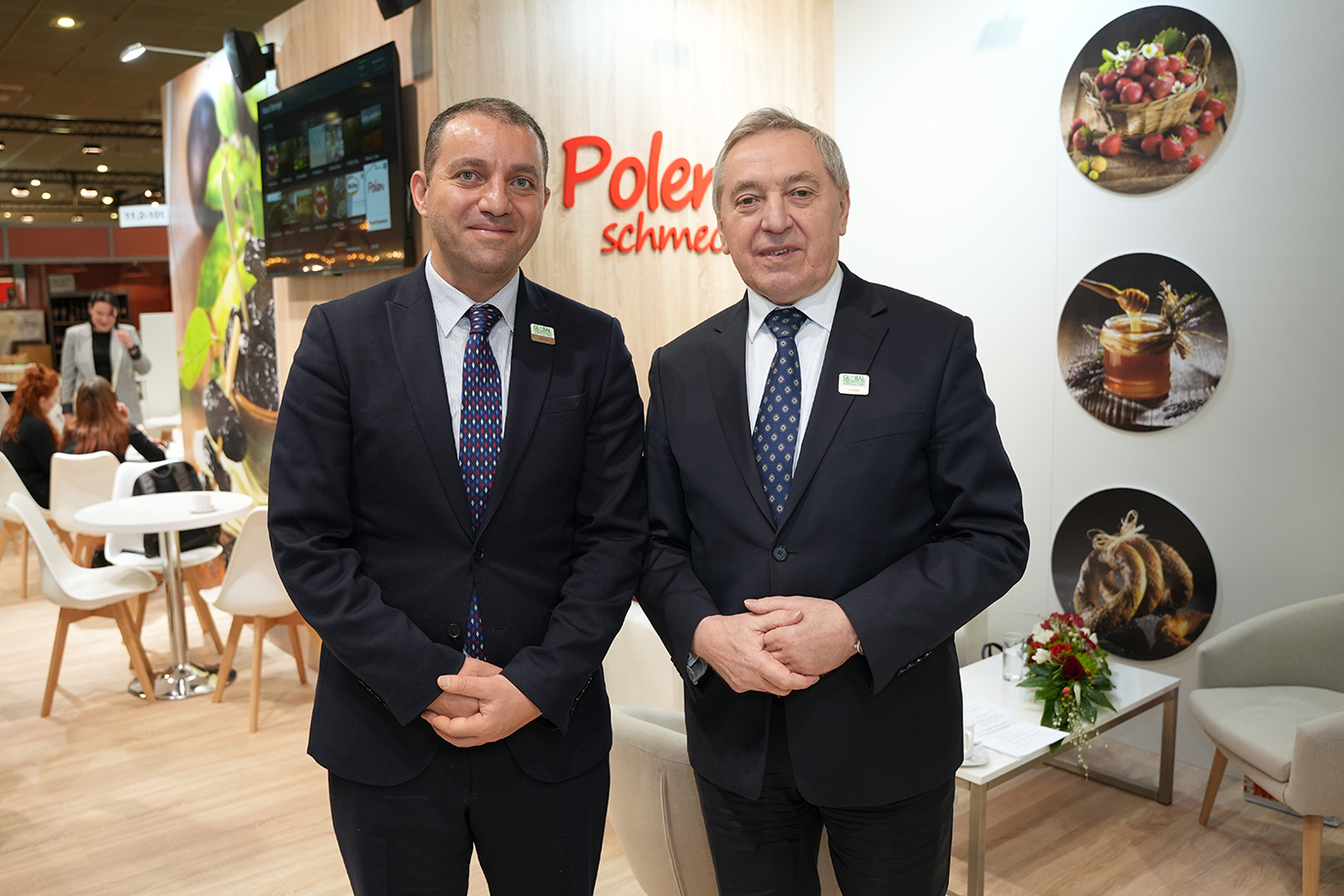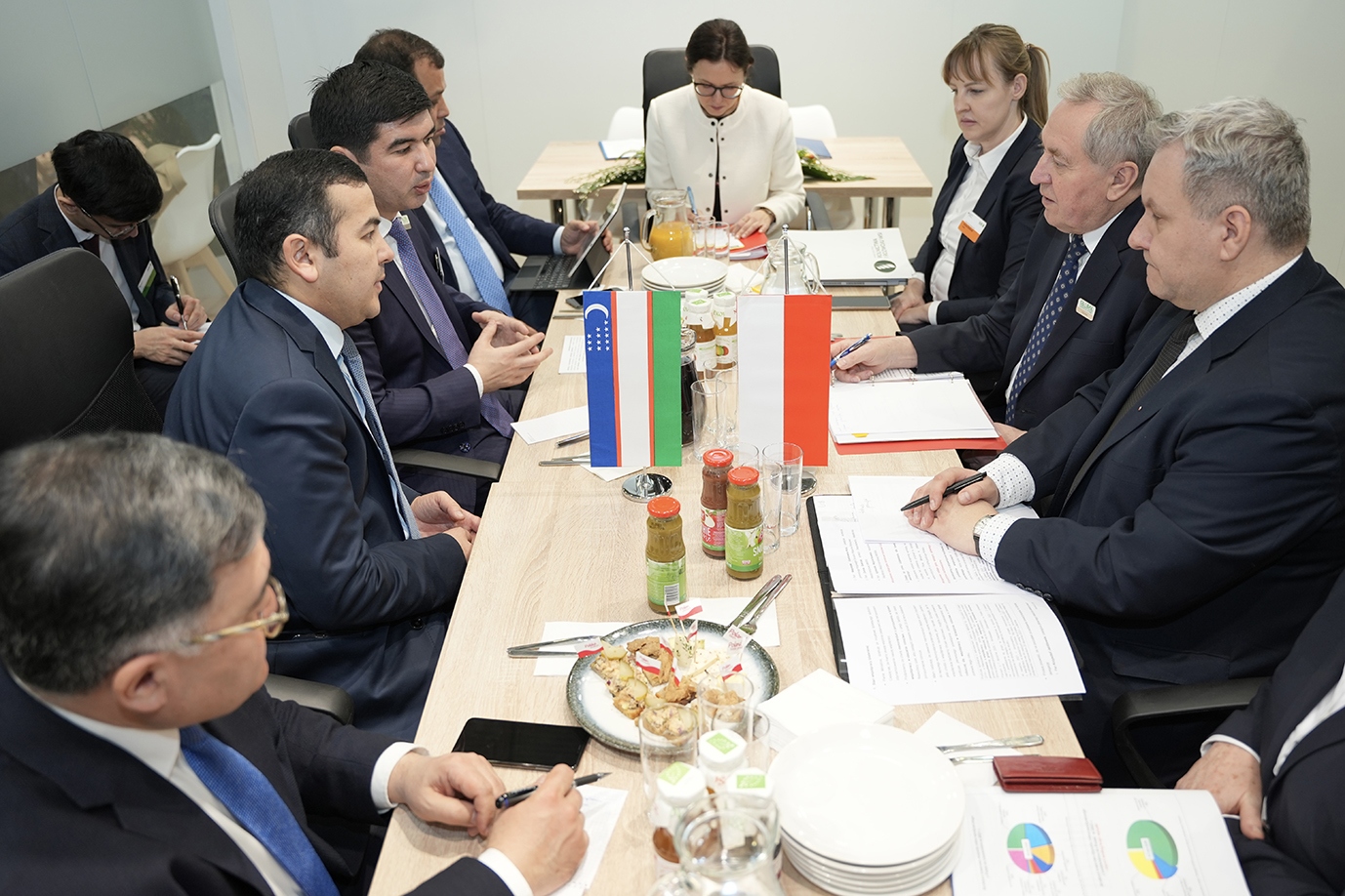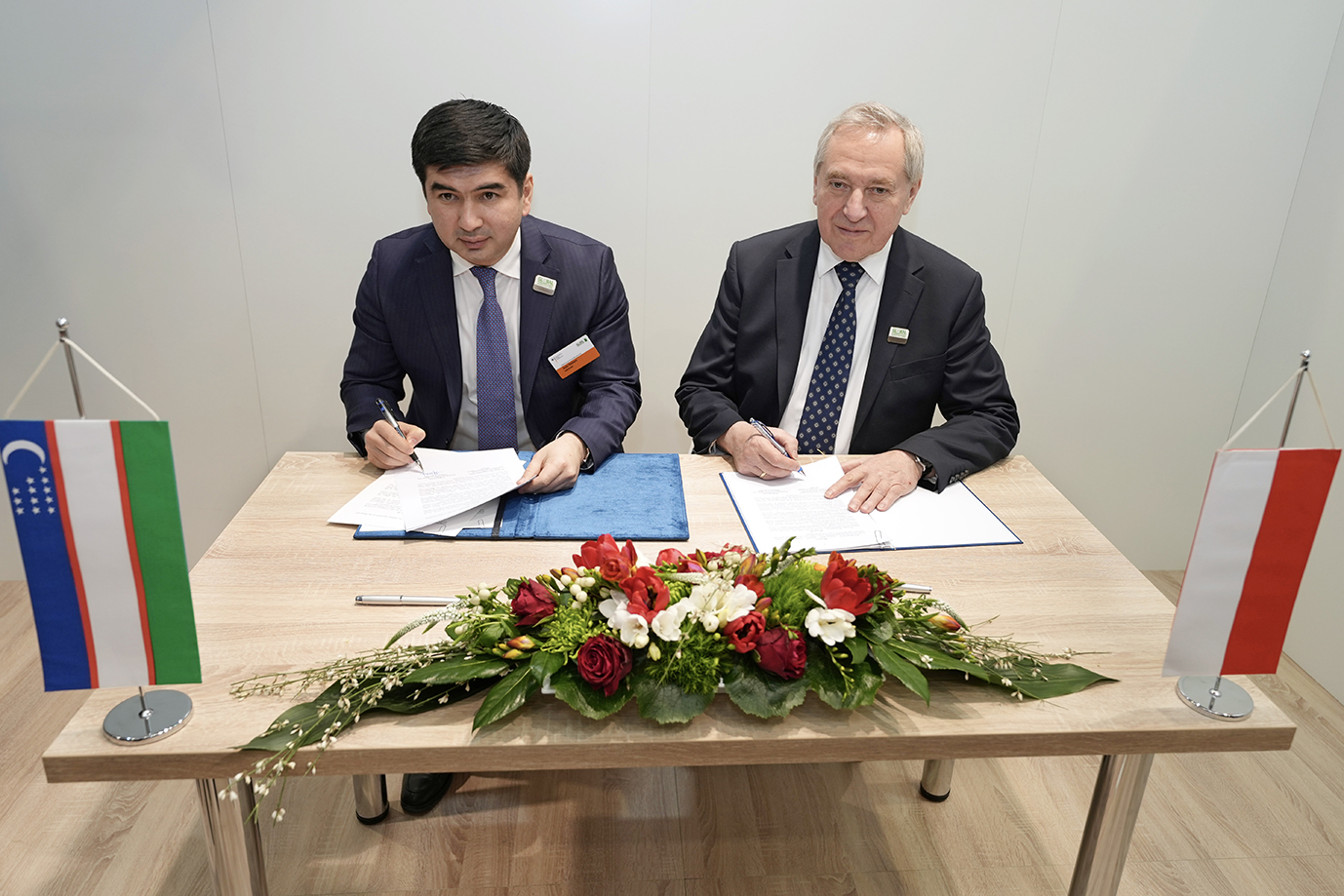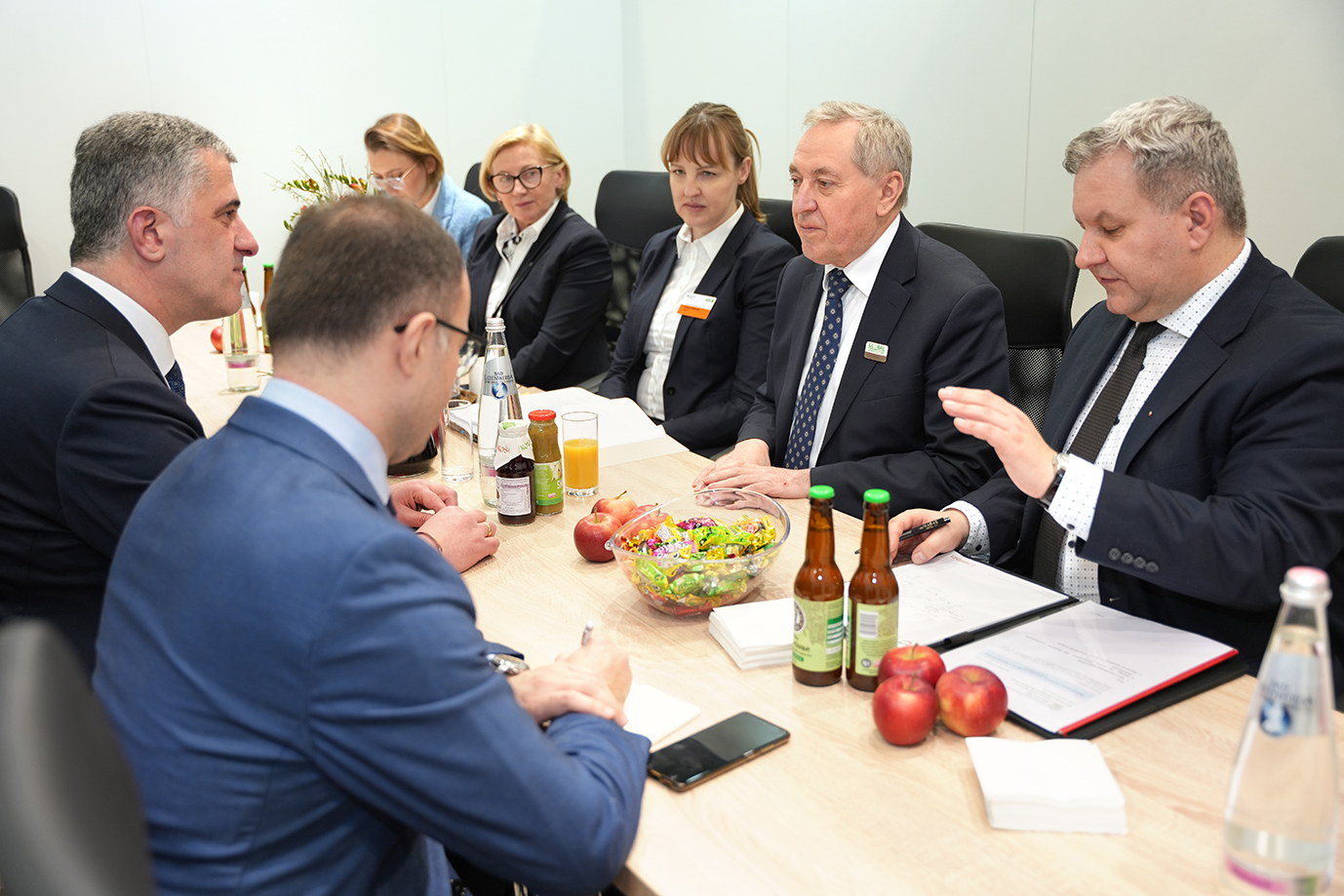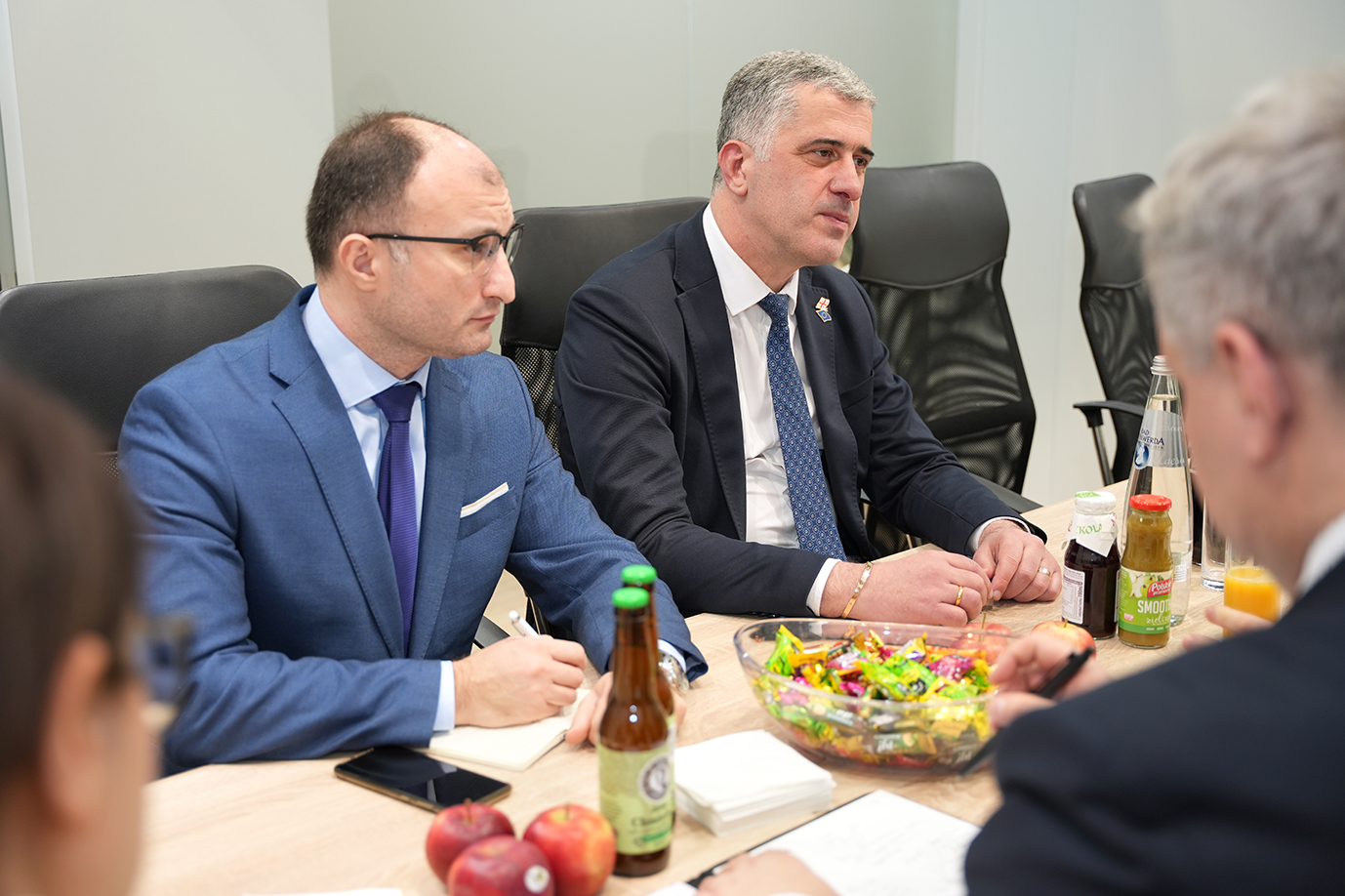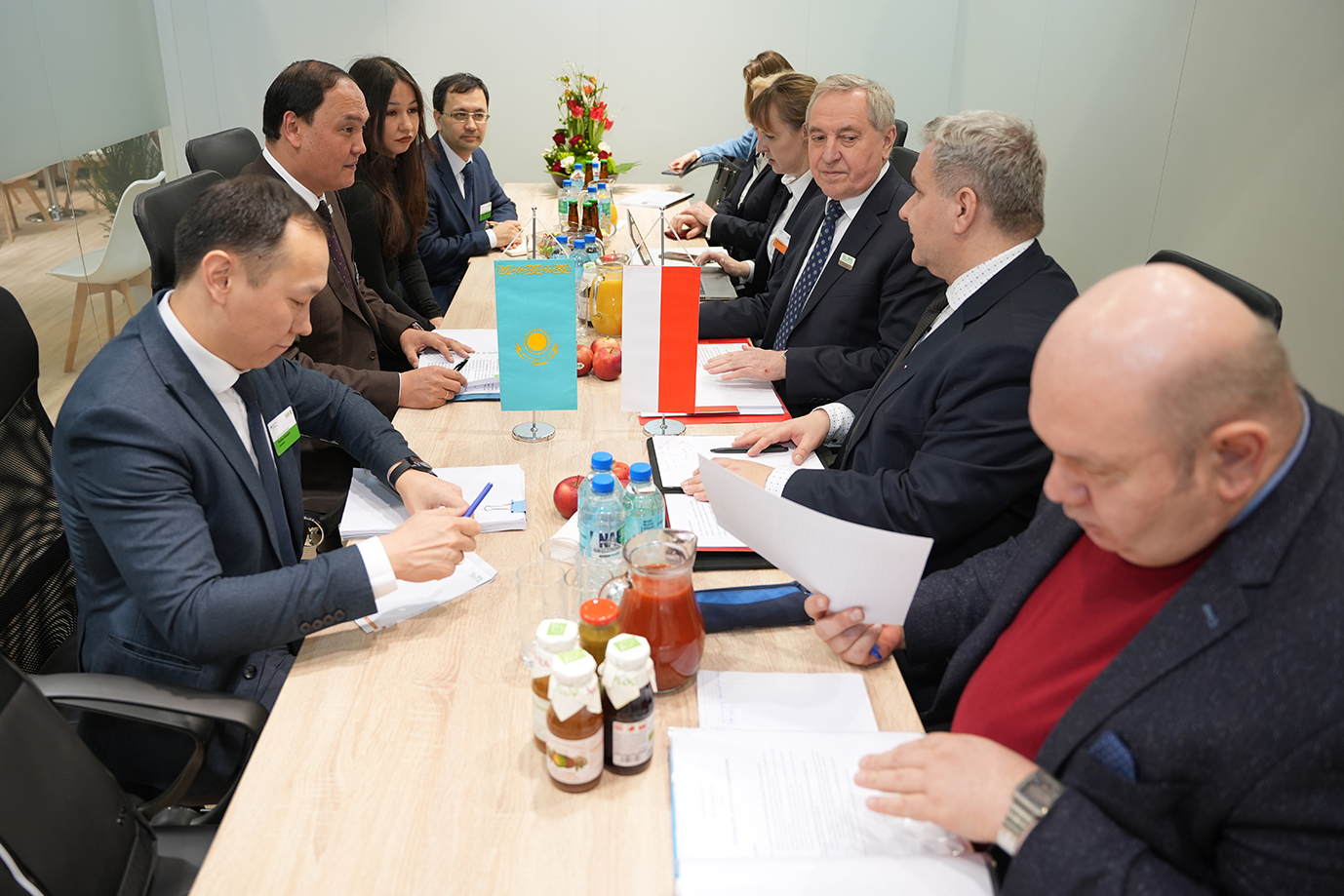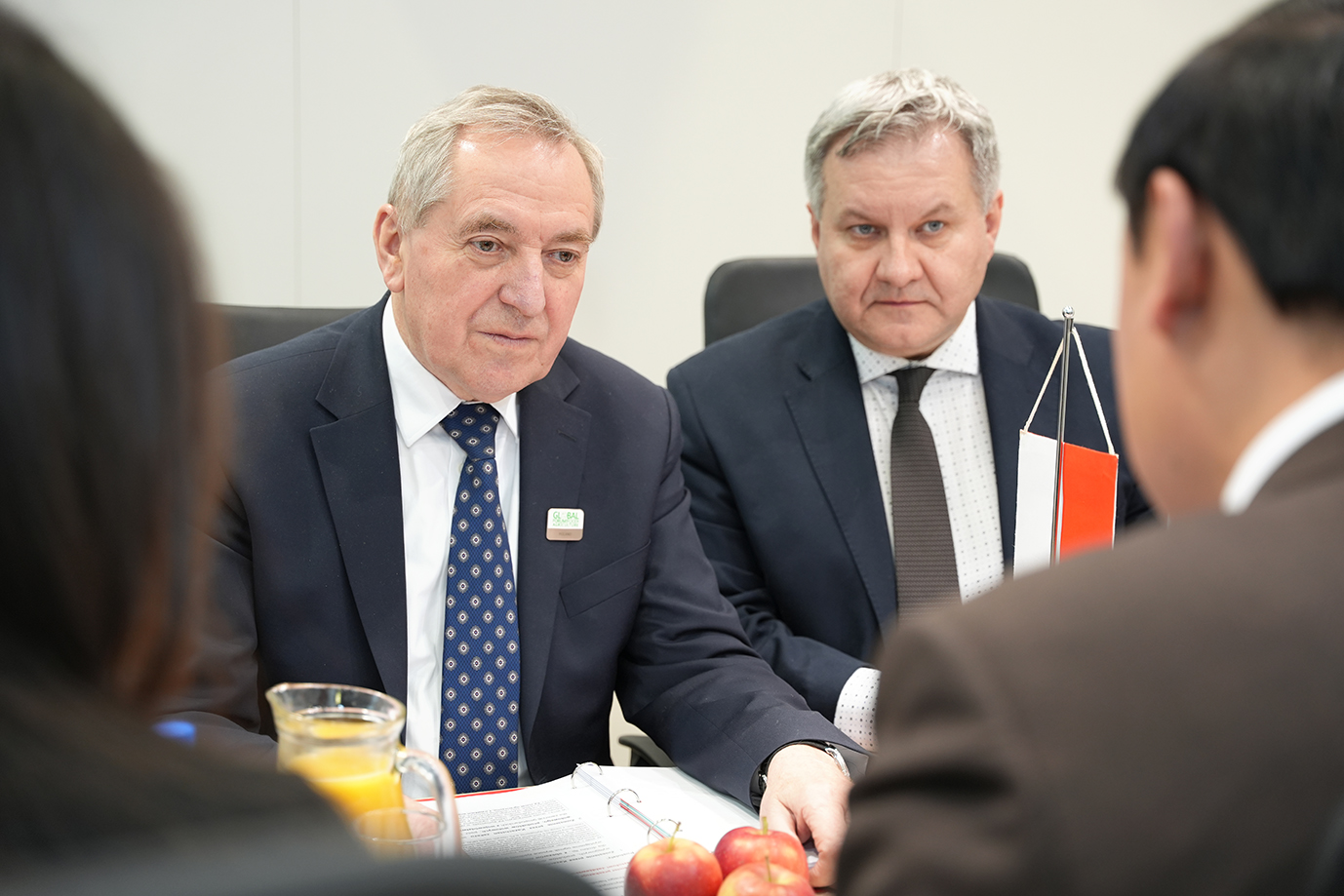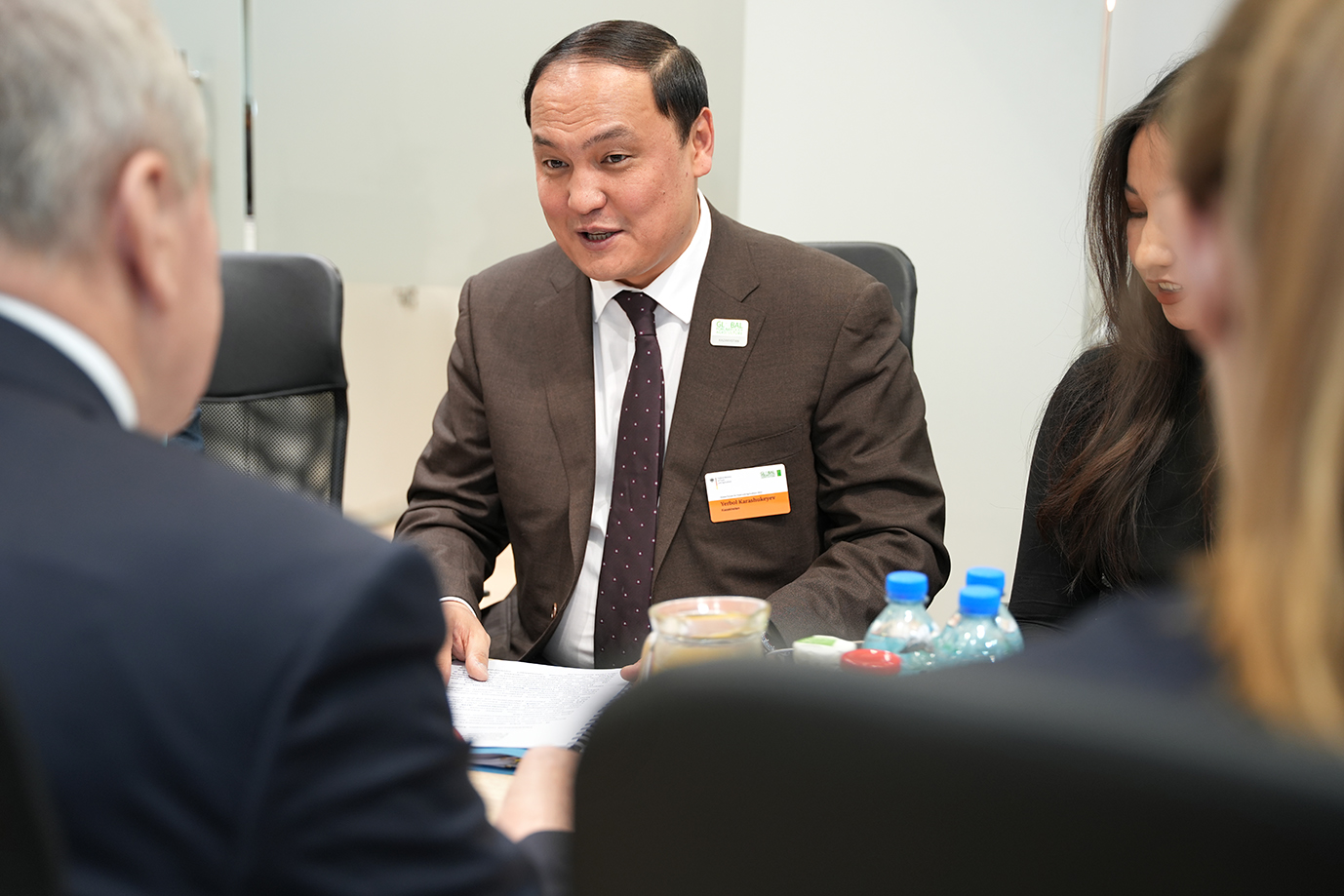Green Week: talks between Agriculture Ministers on prospects for cooperation
20.01.2023
On the sidelines of the Grüne Woche (Green Week) trade fair in Berlin, Deputy Prime Minister, Minister for Agriculture and Rural Development Henryk Kowalczyk held talks with the Agriculture Ministers of Armenia, Uzbekistan, Georgia and Kazakhstan on the possibilities for developing cooperation with Poland in the field of agriculture.

On the Polish side, the meetings were also attended by the Deputy Chief Veterinary Officer, Krzysztof Jazdżewski, the Deputy Director-General of the National Support Centre for Agriculture (KOWR), Małgorzata Gośniowska-Kola and the Director of the Department of International Cooperation at the Ministry of Agriculture and Rural Development, Dorota Białczak.
Talks with the Armenian Minister of Economy
The Polish side initiated the meeting. Deputy Prime Minister Henryk Kowalczyk was interviewed by Armenia's Minister of Economy Vahan Kerobyan, who is also responsible for agricultural affairs.
Poland's position
Deputy Prime Minister Kowalczyk recalled that our countries have an agreement on general agricultural cooperation, a veterinary memorandum and a letter of intent on phytosanitary cooperation. The Head of the Polish Ministry of Agriculture and Rural Development expressed the hope that smooth trade in agricultural goods would be possible between the countries.
At this point, Deputy Chief Veterinary Officer Krzysztof Jażdżewski took the floor and asked the Armenian side for its position on the possibility of using veterinary certificates.
"We would be grateful for clarification as to whether the certificates agreed between the European Union and Armenia can be used in exporting goods of animal origin from Poland to Armenia," said the Polish Minister of Agriculture and Rural Development.
The Head of the Polish Ministry of Agriculture and Rural Development stressed that Poland was interested in developing mutually beneficial agricultural cooperation, including trade. He asked for information on Armenia's demand for agri-food products, emphasising that this would help to adapt the Polish export offer better.
Deputy Prime Minister Kowalczyk noted that the potential for developing cooperation in agri-food trade between our countries is immense but so far untapped and expressed hope for a change in this state of affairs.
Armenia's position
The Minister of Economy of Armenia, Vahan Kerobyan, declared his full readiness and willingness to cooperate with Poland in the development of trade in agri-food goods and in overcoming current difficulties. He conveyed that he would contact the Deputy Chief Veterinary Officer, Krzysztof Jażdżewski, to clarify doubts concerning the use of veterinary certificates.
"It is necessary to create bridges to overcome the barriers to developing our trade in agri-food products," the Armenian Minister of Economy stressed.
Trade in agri-food goods with Armenia
According to data from ten months of 2022, Poland exported EUR 13.1 million worth of agricultural goods to Armenia (this is an increase of more than 158 per cent compared to the same period in 2021) - mainly: water, chocolate and other products containing cocoa, products used for animal feed, bread, confectionery, cakes and pastries and preserves.
Our agricultural imports from Armenia are insignificant. Following ten months of 2022 data, it amounted to EUR 1.9 million (an increase of approximately EUR 1.9 million). Poland mainly imported: preserves, ethyl alcohol, fermented beverages and dried fruit.
Talks with the Minister of Agriculture of Uzbekistan
The meeting was organised at the request of Uzbekistan's Minister of Agriculture, Aziz Voitov, to discuss the possibilities of developing Polish-Uzbekistani cooperation in agriculture.
The Polish side was keen to discuss the issue of extending access to the Uzbek market for Polish pork meat and the inclusion by Uzbekistan of all establishments reported by the Veterinary Inspection on the list of establishments maintained by the Uzbek side.
Poland's position
Deputy Prime Minister Henryk Kowalczyk expressed his hope for an increase in the value of mutual trade, which will be possible if the obstacles to market access are lifted.
"I am counting on the support of the Minister in settling a number of veterinary issues called for by Poland," said the Head of the Polish Ministry of Agriculture and Rural Development.
Deputy Prime Minister Kowalczyk also confirmed Poland's interest in participating in the inaugural meeting of the Working Group on Agricultural Cooperation, tentatively scheduled for February 2023 in Tashkent.
"We are requesting the restoration of the possibility to import pork and pork products from the Kujawsko-Pomorskie Voivodship, which is still subject to import restrictions despite being free of the ASF virus," the Polish Minister of Agriculture and Rural Development informed.
Uzbekistan's position
Deputy Chief Veterinary Officer Krzysztof Jazdżewski and his counterpart from Uzbekistan discussed the possibility of lifting Uzbekistan's export restrictions on Polish meat. They agreed they would be in contact to resolve problems accessing the Uzbek market for Polish meat.
Uzbekistan's Minister of Agriculture, Vahan Kerobyan, stressed his interest in cooperation with Poland in the fruit, vegetable and orchard sectors. He proposed mutual visits by representatives of our countries' fruit-growing sectors. According to the Head of Uzbekistan's Ministry of Agriculture, there is also great potential for developing cooperation in beekeeping between the countries.
Potential for developing Polish-Uzbek cooperation
Deputy Prime Minister Kowalczyk said that KOWR declares its readiness to support the development of foreign trade between the countries.
The two sides also discussed digitalisation in agriculture and agreed it was worth undertaking cooperation in that field, using the achievements of Polish scientific institutes.
"We will be grateful for information on Uzbekistan's demand for agri-food products to adjust our export offer," said the Head of the Polish Ministry of Agriculture and Rural Development.
Memorandum on cooperation between Poland and Uzbekistan
During the meeting, the parties signed a memorandum negotiated between the Ministries on cooperation in agriculture and the Polish-Uzbekistani working group. The countries agreed that this is a prelude to the further development of cooperation.
"It is high time to replace the bilateral agricultural agreement concluded more than 20 years ago. I hope that the conclusion of the memorandum will provide a strong impetus to exploit better our cooperation's potential - both in terms of scientific cooperation and trade. The details of how we will want to implement this cooperation could be discussed at the first meeting of the Polish-Uzbekistani working group on agricultural cooperation in the first half of this year," said Deputy Prime Minister Kowalczyk.
Trade in agri-food goods with Uzbekistan
In January-October 2022, exports to Uzbekistan amounted to approximately EUR 29.4 million (an increase of 23 per cent compared to the same period in 2021). As in previous years, Poland exported meat and edible offal from poultry to Uzbekistan. Other commodities included animal feed products, starches, inulin, processed and preserved (frozen) vegetables, apples, malt extract and live cattle.
In January-October 2022, the value of imports from Uzbekistan amounted to EU 4.1 million, an increase of 13 per cent compared to the same period in 2021. Poland mainly imported: fresh or dried grapes, plants and their parts, fresh or chilled vegetables, melons, and fresh watermelons.
Polish-Uzbekistani trade in agri-food goods has the potential for further development.
Talks with the Minister of Agriculture of Georgia
The meeting between Deputy Prime Minister Henryk Kowalczyk and Georgian Agriculture Minister Otar Shamugia was held on the initiative of the Georgian side. The interlocutors stressed that our countries have amicable relations. Minister Shamugia further informed about Georgia's pro-European aspirations. He declared to take measures to adapt Georgian agriculture to the requirements of the European Union. The parties unanimously confirmed their will to cooperate in agriculture.
Talks with the Minister of Agriculture of Kazakhstan
The meeting between Deputy Prime Minister Henryk Kowalczyk and Kazakhstan's Minister of Agriculture Yerbol Karashukev was held on the initiative of the Polish side. Poland was particularly keen to present its demands regarding access to the Kazakhstan market for Polish poultry, and beef and to establish conditions for cattle exports.
Poland's position
At this point, Deputy Prime Minister Kowalczyk gave the floor to the Deputy Chief Veterinary Officer, Krzysztof Jazdżewski. He presented the demands for:
- Kazakhstan to lift restrictions on imports of, among others, poultry, hatching eggs, poultry products, feed and feed additives for poultry from non-restricted areas due to outbreaks of highly pathogenic avian influenza (HPAI);
- the lifting by Kazakhstan of the ban on imports of cattle, beef meat, beef products, feed and feed additives for livestock from the Lower Silesian Voivodeship;
- confirmation by Kazakhstan of the possibility of using the health certificate agreed between the EU and Kazakhstan, accompanied by an annexe to the afore-mentioned certificate, for the export of breeding and productive cattle to Kazakhstan.
Kazakhstan's position
Kazakhstan's Minister of Agriculture, referring to the postulates of Deputy Chief Veterinary Officer Krzysztof Jażdżewski, said that his Kazakh counterpart would contact him to find solutions.
Minister Karashukev expressed his desire to develop the countries' cooperation, especially in the fields of fruit and vegetable processing and dairy.
Trade in agri-food goods with Kazakhstan
In January-October 2022, the value of exports to Kazakhstan increased by 43.5 per cent compared to the same period in 2021. As in previous years, Poland exported to Kazakhstan mainly apples, pears and quinces, vegetables (fresh, processed, preserved, frozen) and food preparations, live cattle and products used for animal feeding.
In January-October 2022, the value of imports amounted to EUR 71 million, an increase of 41.6 per cent. During this period, the main commodities imported from Kazakhstan were flax seeds, fish fillets and other fish meat, wheat and meslin, rape and colza seeds, oilseeds, sunflower seeds, and groats.

